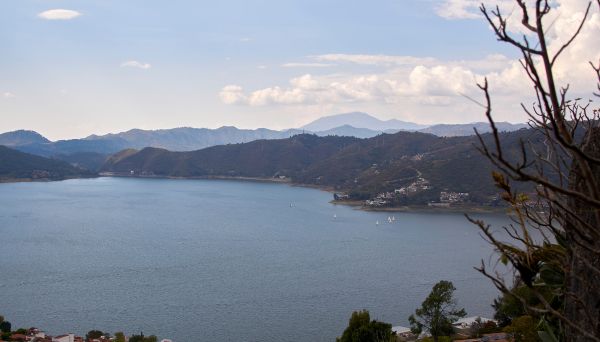CEC Receives Submission on Water Quality and Natural Resources in the Valle de Bravo-Amanalco Sub-Basin
Montreal, 16 May 2023—Yesterday, two coalitions, Observatorio Ciudadano de la Subcuenca de Valle de Bravo-Amanalco and Sé la Voz de la Naturaleza, along with other organizations, filed a submission under Chapter 24 of the United States-Mexico-Canada trade agreement (USMCA/CUSMA) with the Commission for Environmental Cooperation (CEC). The Submitters assert that Mexico is failing to effectively enforce its environmental laws including constitutional law, the National Waters Act, the Ecological Balance Act and Environmental Protection Act to protect forests, biodiversity, and water resources from degradation and contamination in the Valle de Bravo-Amanalco watershed in the municipality of Valle de Bravo in the State of Mexico, Mexico.
In submission SEM-23-005 (Valle de Bravo-Amanalco Sub-Basin), the Submitters assert that Mexico is failing to protect natural resources, particularly water resources, in the Valle de Bravo-Amanalco sub-basin from the effects of changes in land use from forest to agriculture, livestock, and large real estate developments, alleging considerable impacts on biodiversity and soil erosion, as well as water pollution and soil contamination from untreated waste. The Submitters state that water quality in the watershed has deteriorated due to siltation and contamination of the Valle de Bravo dam because of direct discharge of sewage into the water, as well as discharges of wastewater into the rivers from aquaculture and agriculture with high levels of nitrate and phosphates, and maintain that the Valle de Bravo dam has reached 48% capacity, a historical minimum threshold.
The Submitters highlight that almost all of Valle de Bravo is a protected area that includes part of the Oyamel Fir Forest, a destination for monarch butterfly migration. The Submitters emphasize the importance of these issues, given that the Valle de Bravo watershed provides drinking water for the municipality of Valle de Bravo, neighboring communities, and 24% of the drinking water in thirteen municipalities of the Metropolitan Zone of Mexico City and fourteen municipalities of the State of Mexico through the Cutzamala System.
The Submitters state that the lack of environmental impact authorizations for changes in land use and large real estate developments, including the construction of more than 250 private dams, is a major factor in the issues in watershed today.
The Secretariat will review the submission within 30 days and determine whether it meets the requirements of USMCA/CUSMA Articles 24.27(1), (2), and (3). To learn more, please consult the registry page for the submission SEM-23-005 (Valle de Bravo- Amanalco Sub-Basin).

Submission filed under USMCA/CUSMA Chapter 24 asserts failure to effectively enforce environmental law in Mexico to protect forests, biodiversity, rivers, and springs in the Valle de Bravo Sub-Basin in the State of Mexico
The CEC SEM Process
The CEC Submissions on Enforcement Matters process supports public participation, information-sharing between governments and the public, and transparency and openness in the effective enforcement of environmental law in North America. If you have reason to believe that an environmental law is not being effectively enforced by Canada, Mexico or the United States, the SEM process may address your concerns.
As of 1 July 2020, the CEC’s SEM process is governed by USMCA Articles 24.27 and 24.28 of the Environment Chapter of the free trade agreement between Canada, Mexico and the United States (CUSMA, T-MEC, USMCA).
Want to learn more about the SEM process? Please watch this two-minute video for an introduction: